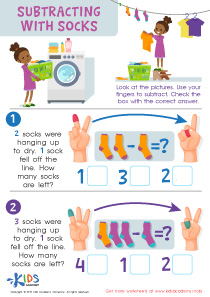Subtraction practice Easy Kindergarten Addition and Subtraction Word Problems Worksheets
12 filtered results
-
From - To
Enhance your child's math skills with our engaging "Subtraction Practice Easy Kindergarten Addition and Subtraction Word Problems Worksheets." Perfect for young learners, these worksheets help develop essential subtraction and addition skills through fun, kid-friendly word problems. Each printable worksheet is designed to build confidence and understanding by presenting real-life scenarios that captivate young minds. Ideal for home or classroom use, these carefully crafted activities support Kindergarten math standards and make learning enjoyable. Ignite a love for math and ensure a strong foundation in basic arithmetic with our expertly designed worksheets on Kids Academy. Start today!
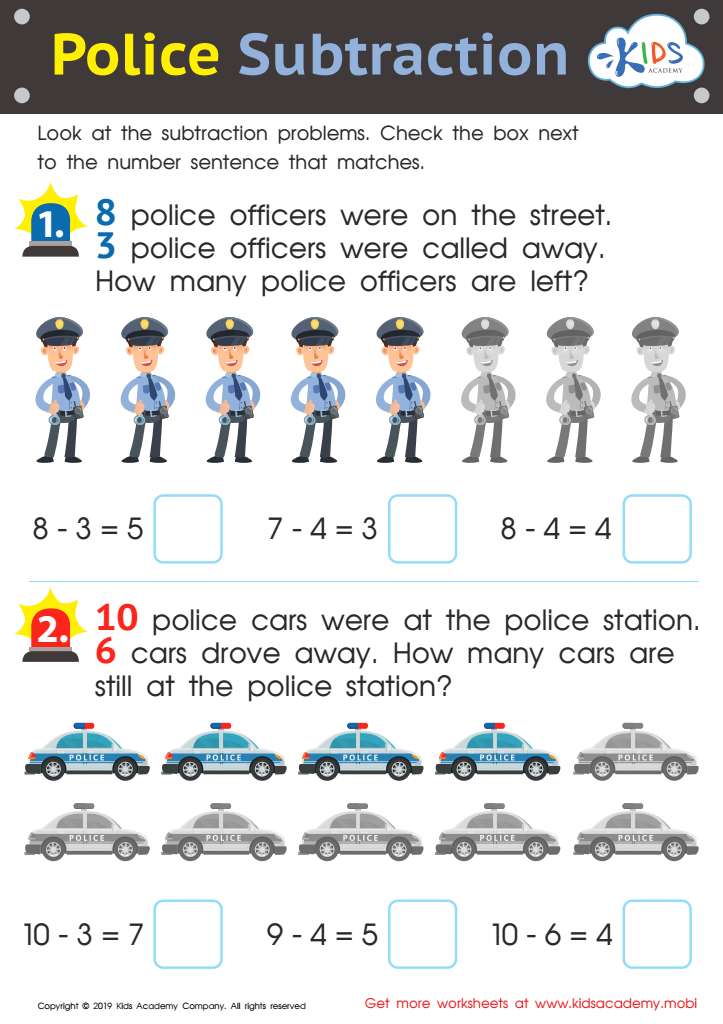

Police Subtraction Worksheet
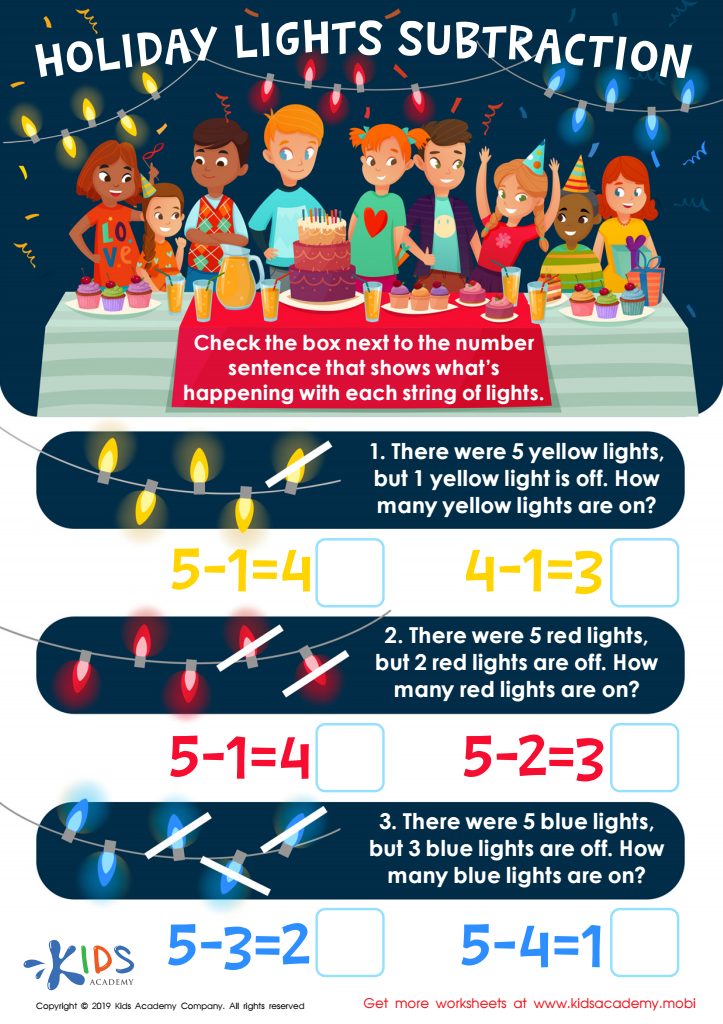

Holiday Lights Subtraction Worksheet
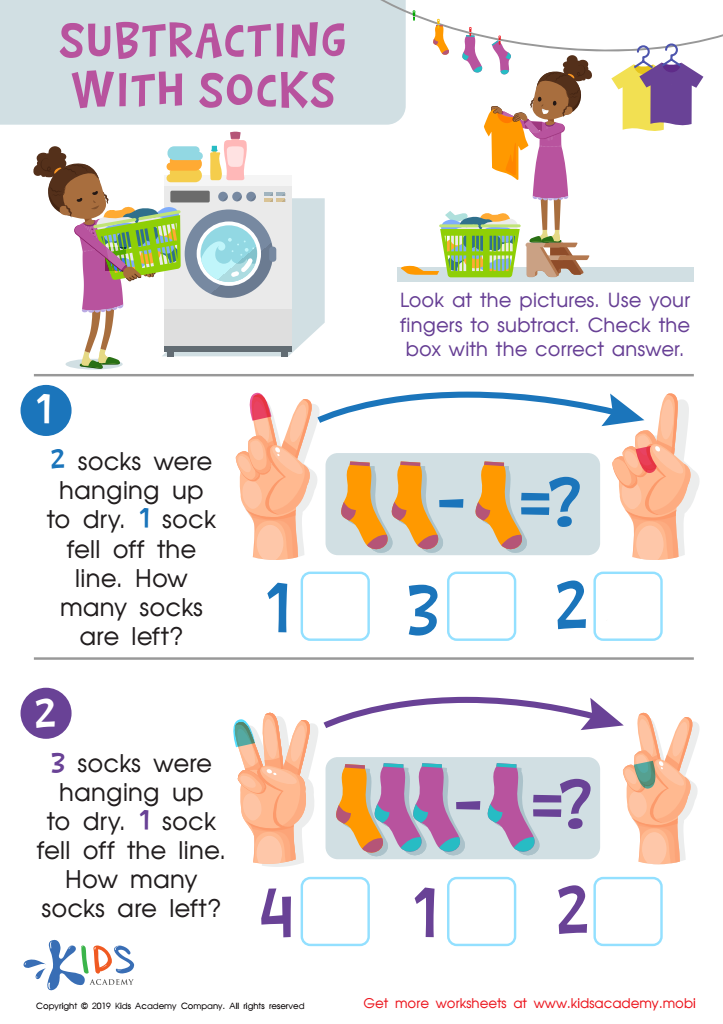

Subtracting Socks Worksheet
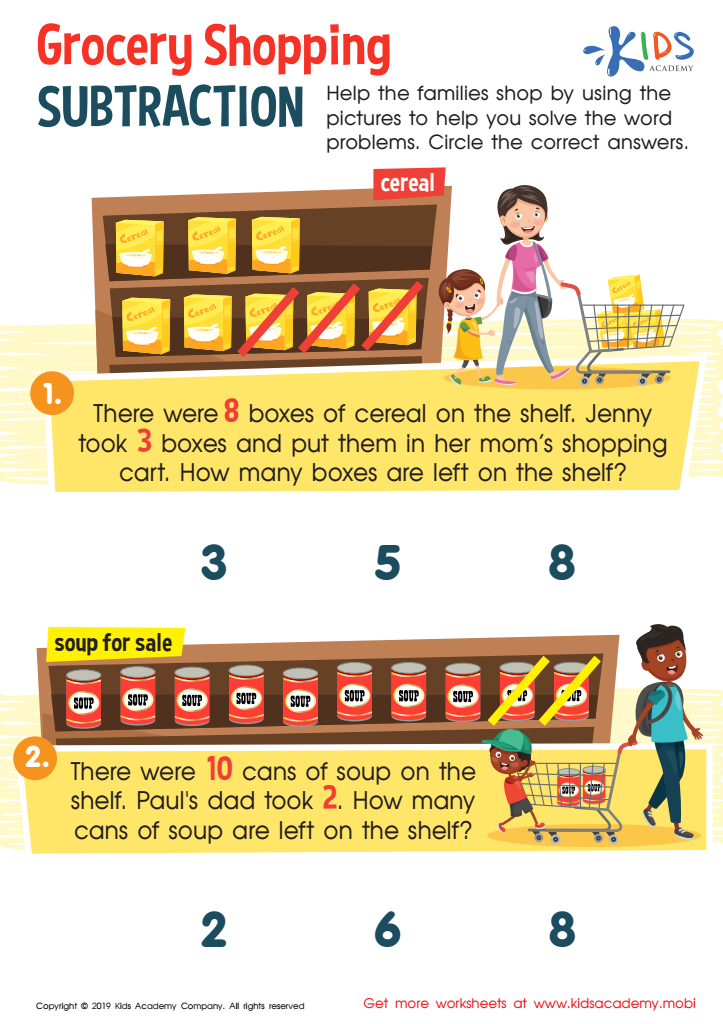

Grocery Shopping Subtraction Worksheet
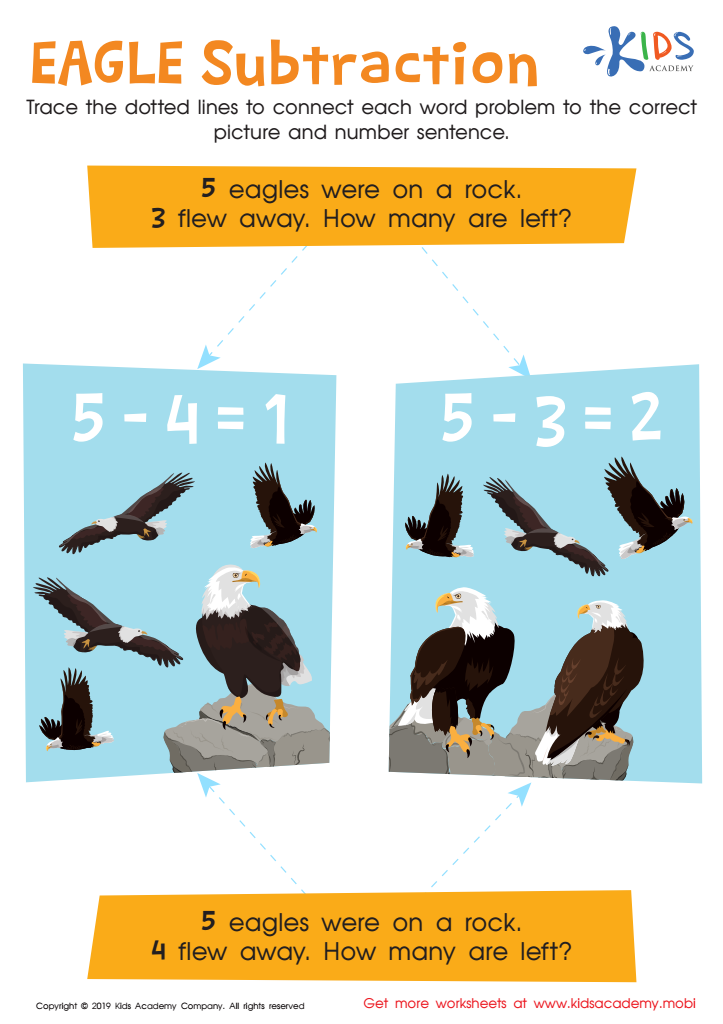

Eagle Subtraction Worksheet
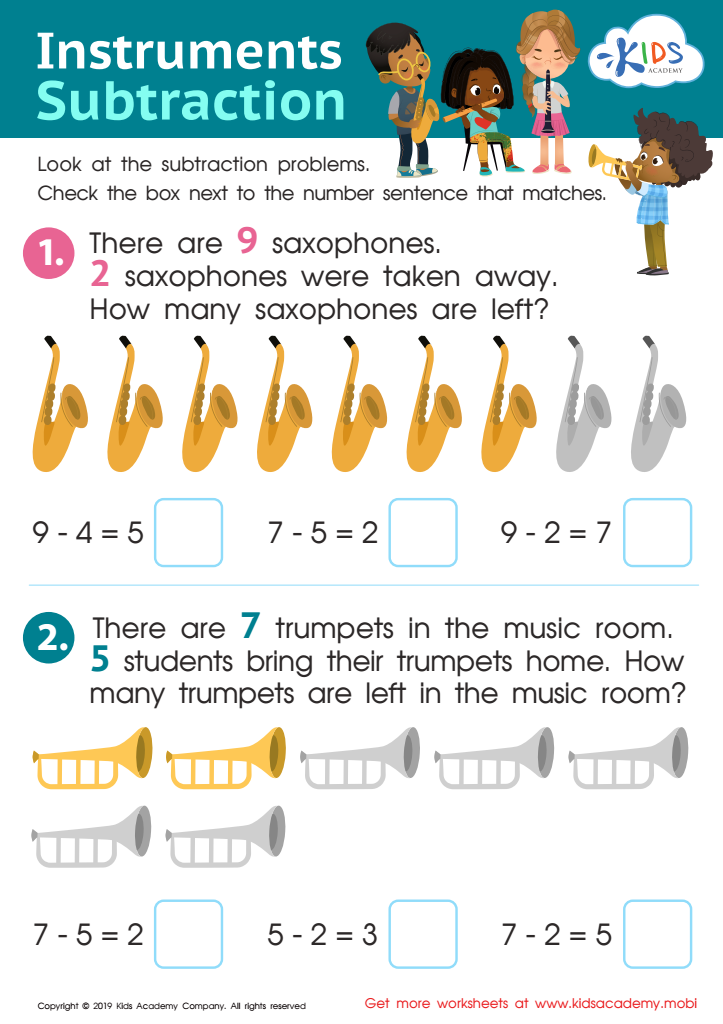

Instrument Subtraction Worksheet
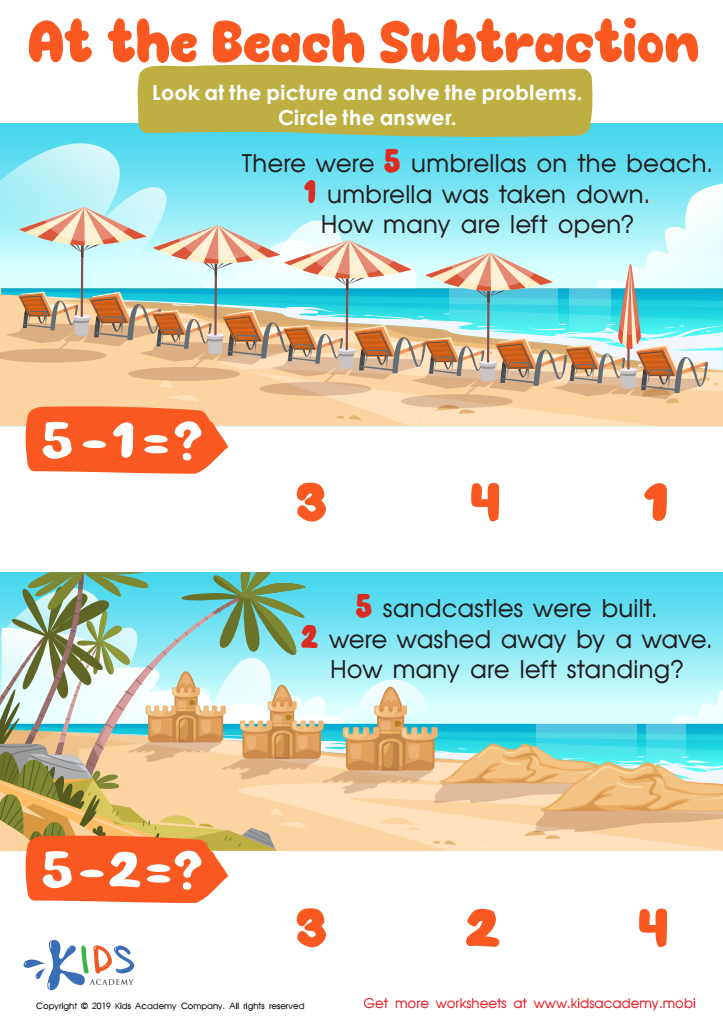

At the Beach Subtraction Worksheet
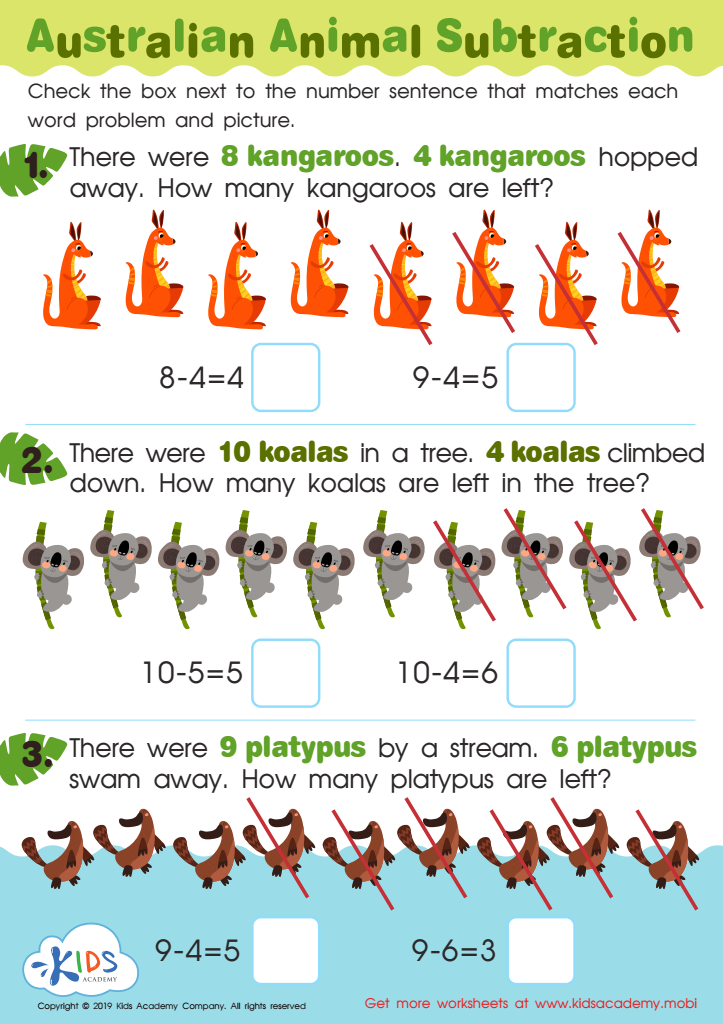

Australian Animal Subtraction Worksheet
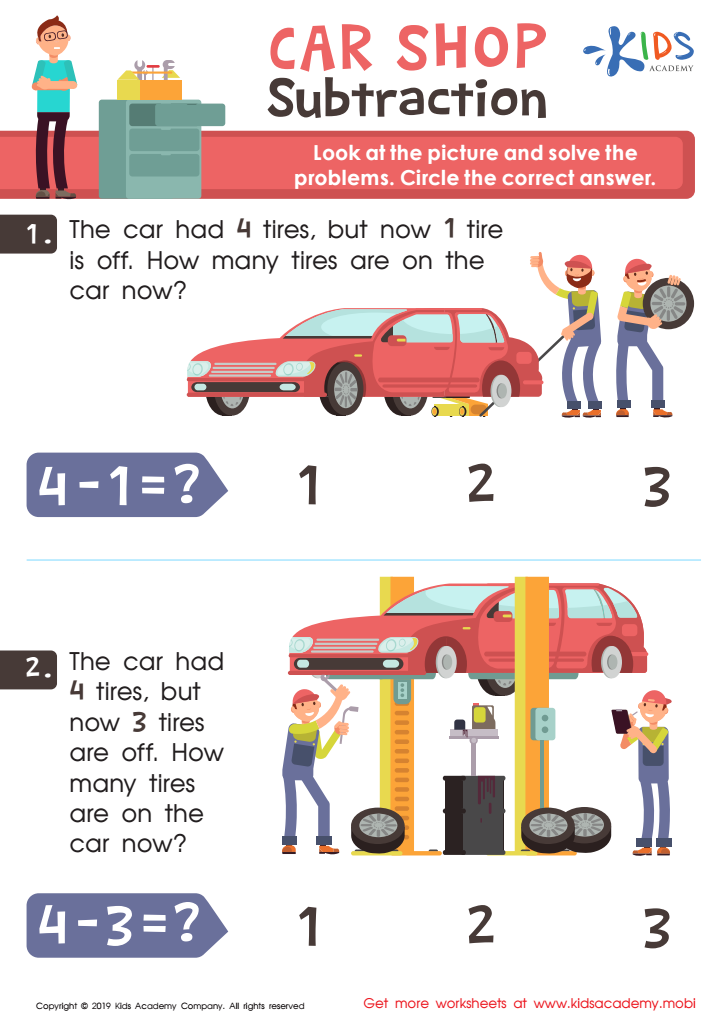

Car Shop Subtraction Worksheet
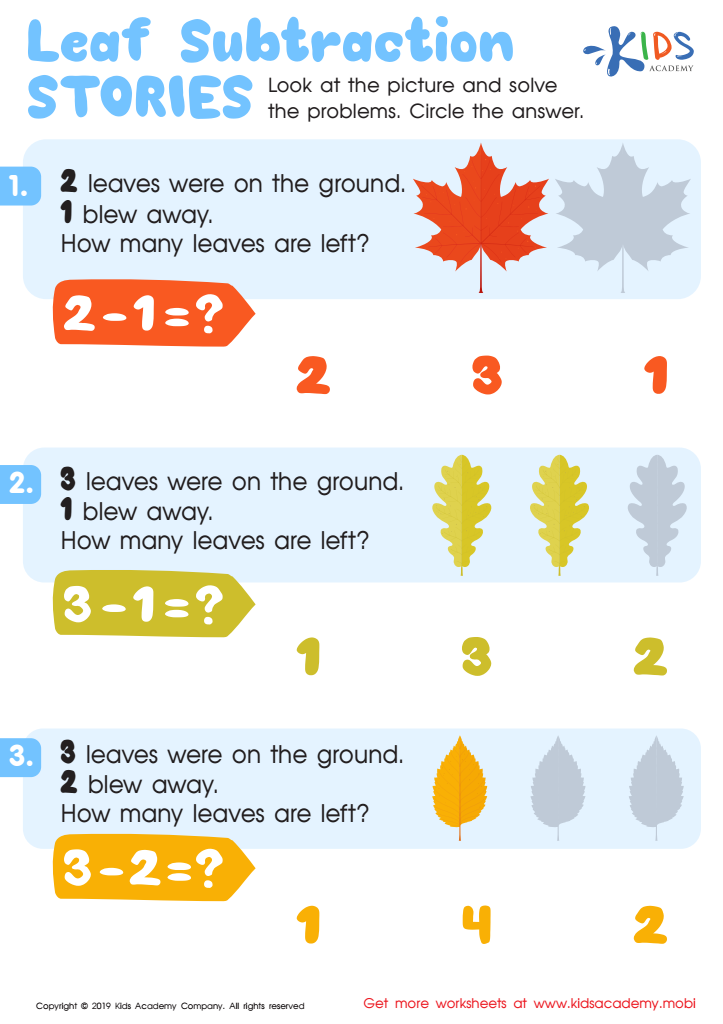

Leaf Subtraction Stories Worksheet
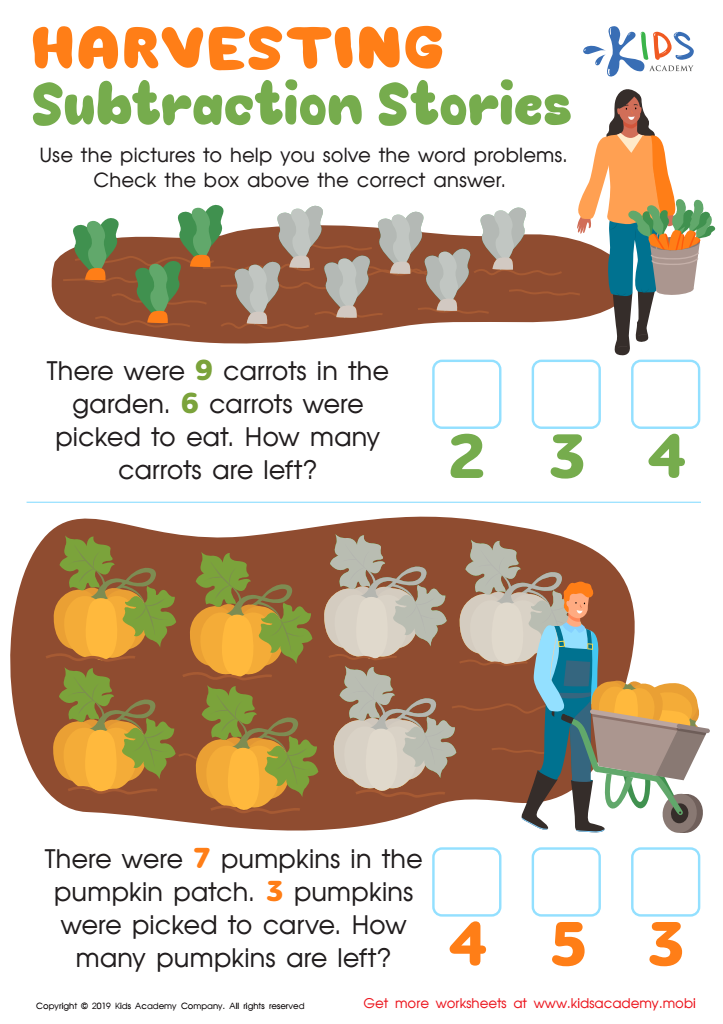

Harvesting Subtraction Stories Worksheet
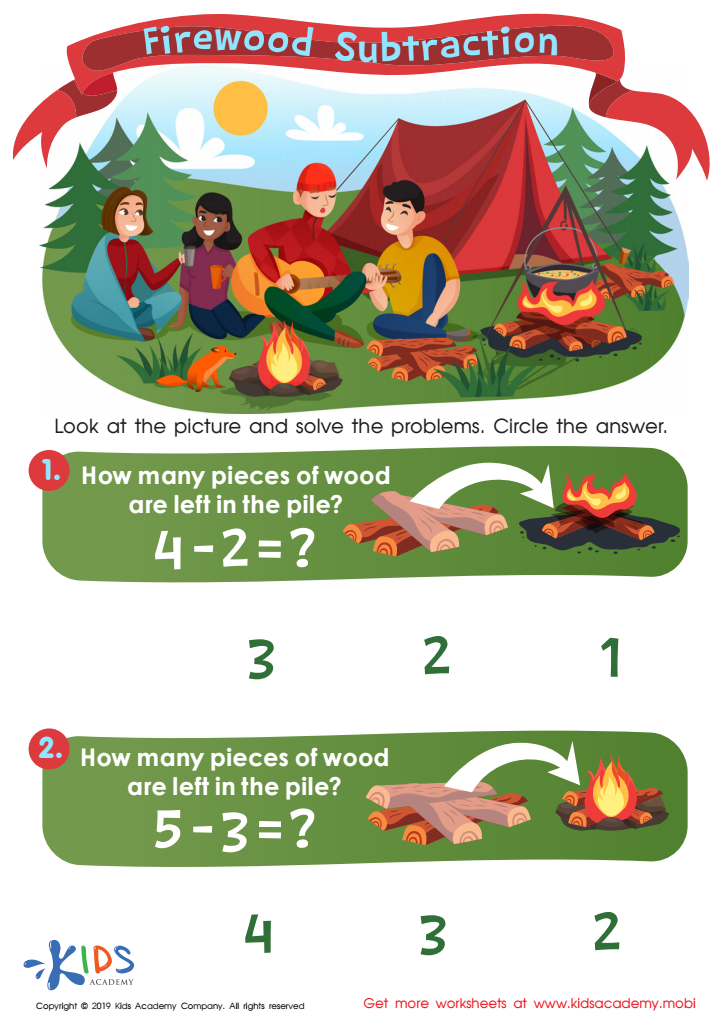

Firewood Subtraction Worksheet
Parents and teachers should emphasize subtraction practice in conjunction with easy Kindergarten addition and subtraction word problems for several pivotal reasons. Firstly, mastering basic subtraction and addition sets the foundation for future math skills. These fundamental arithmetic operations are the building blocks for more advanced mathematical concepts, enabling students to build confidence and accuracy in problem-solving.
Early exposure to subtraction and simple word problems also enhances cognitive development and critical thinking. When children solve word problems, they are required to comprehend the context, translate it into a mathematical format, and calculate the answer. This process strengthens their ability to focus, analyze information, and apply logical reasoning—skills that are crucial not only in academics but in everyday life situations.
Moreover, working on subtraction and addition word problems helps young learners develop language and comprehension skills. By reading problem scenarios, kids learn new vocabulary and improve their ability to understand and follow instructions.
Lastly, routine practice harnesses a positive attitude towards math. When children regularly engage with manageable math problems and experience success, they're more likely to view math as approachable and enjoyable, which fosters a love for learning and a proactive attitude towards challenges in future academic environments. By prioritizing these practices, parents and teachers are setting children on a path to mathematical proficiency and overall scholastic success.
 Assign to My Students
Assign to My Students













